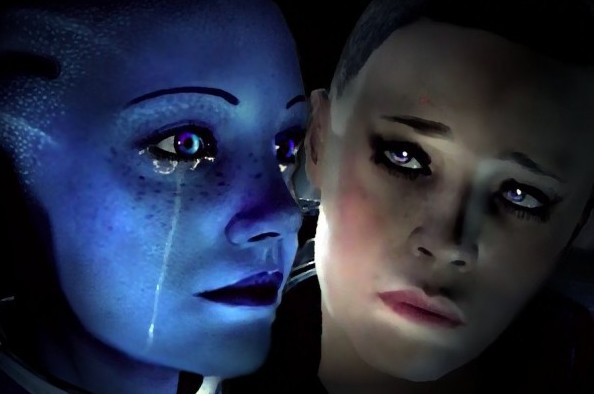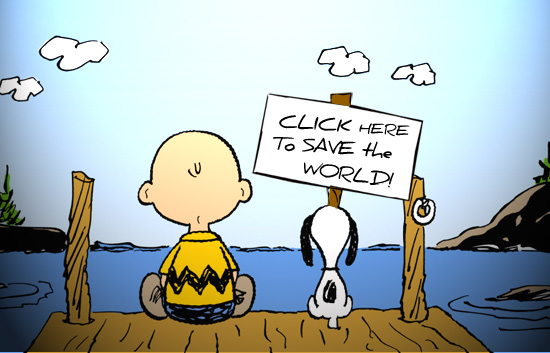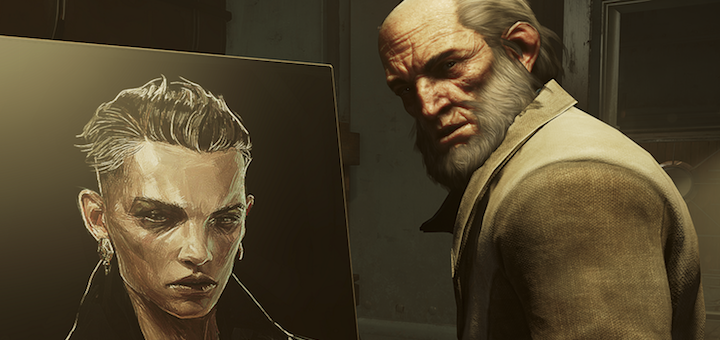This week, I wanted to continue my exploration of The Last of Us, with a little dash of something I didn’t get to talk about: The Walking Dead’s 400 Days DLC. As I played through 400 Days, I found myself thinking a great deal about my choices and what impact they would have on the game, in light of what I learned while playing the main game, and then these issues popped up again as I played through The Last of Us, where there are very few choices. In my first look at that game, I wrote a little of the lines between movies and games, and that’s ground I’ll tread more fully here, because I think that’s one of the issues at the heart of any discussion about agency in video games, and one of the great potential differences in narrative style between films and games.
Since I’ll be discussing the narratives of these games, along with player choices, it probably goes without saying that this will be a spoiler-heavy exploration, but still: you’ve been warned.
With the spoiler warning out of the way, I might as well move straight to the ending of The Last of Us. Bear with me for a moment here as I reimagine, for giggles, the narrative structure of the game. What if, instead of finding Marlene’s confessional recordings, we found instead evidence of Ellie’s knowledge (or lack thereof) of her potential fate? What if we learned more about the tests and the potential for a cure? This last is addressed, but not fully. What if you get the information you need to make the choice between saving Ellie and possibly saving humanity (made even more interesting if there’s only a chance of a cure), and are then offered the chance to make that choice? I don’t mean a screen in which you choose an option, as has been suggested, but a real moment, perhaps in the operating room, perhaps when confronted by Marlene, when you, as Joel, have the opportunity to look at everything you’ve been through and decide? And are then delivered an ending based on that choice?
Erik Kain of Forbes argues The Last of Us isn’t a game about choices, and he’s right: as presented, it isn’t. But this also ties into part of what I was talking about last week with Chris Franklin’s discussion of the Last of Us as film, in a sense, perhaps moreso than game. We watch what happens here. We move blocks, we avoid (or engage) clickers, but in the end, we watch. We are along for a ride, but we’re in the back of the truck here, watching, listening, and not participating. How would our conversations about this game change if we were offered the chance to make that pivotal decision at the end?
As someone who gets very invested in narratives, as a parent… I don’t know what I would choose. Especially if the research into the cure* wasn’t a guaranteed success. All I know is that it’s a choice that would, for me, offer that watershed gaming experience that the reviews promised. I do wonder how many of us, though, would have made Joel’s precise choices. How many of us would have saved Ellie and shot Marlene, then lied about it? Would we have created Naughty Dog’s vision on our own?
I realize at this point that I sound bitter, or as though I didn’t enjoy The Last of Us, and as with last week, I want to stress that this isn’t the case. It’s just that the more I dig into it from an exploratory perspective, the more things I want to examine or question, and this what-if dreaming is something that has weighed heavily on my mind. But I do want to refer back to Kain’s piece and say that I agree when he says the game wasn’t structured to allow this choice. It’s a narrative offered as a holistic experience by Naughty Dog.
But as someone who studies narrative, I can’t help but wonder if this closed-off approach isn’t better suited to different media, and if that’s why some people (including Kain’s peer at Forbes, Carol Pinchefsky, report frustration with the story and the ending in particular). We want agency. We want that feeling of control. We are driving these characters around, and they function as our avatars, our window into the experience. If we are not given the chance to shape that narrative, we might as well be watching a film or reading a book, and if not, where, then, is the difference between a game narrative and a film narrative? Where do we draw that line, anyway, when we’ve long had game books that offer branching paths, and interactive movies as well (like one of my old favorites, The Outbreak), and is it even a line we should draw at all as media lines begin to blur further?
Perhaps I am in the minority here, considering the legions of gamers crying out for progressively more beautiful titles, but I would trade some of the shine on individual strands of hair for real sprawling, branching narratives if need be. Of course, the more developers try to deliver on branching narratives, the more, perhaps, we will complain that our options are not infinite.
Which leads me back to 400 Days. I couldn’t get to the DLC right away, but I certainly thought a lot about it while I went about my other business, and about The Walking Dead as well. When I first played the game, I was terribly excited about the choices I was able to make, but as I advanced in the narrative, I began to wonder what sort of impact those choices would actually have. The answer is either a little or a lot, depending on your view. Certain events happen no matter what, but how you get there, and whom you have with you, can make a big impact on how you experience the story. Yes, in the end, Clementine still moves on alone, but you’ve built a Lee who in turn built her as a character. Though events in the game advance regardless, I did feel as though I was given true agency (though limited by design) and the ability to shape my experience.
But — and isn’t there always a but? — in both games, I feel at times the gameplay mechanics get in the way of the story. In The Last of Us, the block-pushing, find-the-triangle approach was incredibly tiresome for me (or, let me just goddamn swim-haul Ellie across this four-foot stretch of water, just this once), and there are moments in The Walking Dead (and its DLC) that feel slapped-on, as though someone suddenly remembered that this was a game they were designing, not an interactive novel, so quick! Throw in some shooting! Add some button presses! Make something that looks like a puzzle but is really obvious! Which, for me, further begs the question of where those lines are drawn. If we’re participating in an interactive narrative, do we need some of these other elements? Is it enough to choose and watch, or must we be the one to pull the trigger?
Sometimes, those gameplay elements do work, and do increase immersion. Episode 2 of The Walking Dead offers a great example here in the opening scenes in the woods, when Lee and company meet Ben’s group, which includes David, whose leg has been caught in a bear trap. If Lee decides to try to chop off David’s leg — the only way to free him — the player-as-Lee must repeat the action a gory, horrifying four times in order to sever the limb. I remember my “aim” with the analog stick wasn’t so hot in that tense moment. I was placed in that experience about as much as I could be without actually wielding an axe (something I’d prefer to avoid). While I find some of the gameplay mechanics in The Walking Dead, like this one, a little clunky at times, they do often serve to increase immersion, and thus connection to the player avatar.
There’s less of this in 400 Days, however. We’re given choices, certainly, but with a reduction in gameplay elements (there’s very little “action” here), some of those choices seem far less important. How is Vince really changed by the decision of how to dispose of his murder weapon, for instance? If that ends up meaning something, I’ll happily eat my words, but it felt like filler. Other choices seemed to be missing in order, I suppose, to preserve future narrative (I wanted a third choice in Shel’s story; Roman seemed awfully toxic and might have benefited from a dose of gun-to-face).
The stories in 400 Days are of the iceberg variety; we actually see very little but can infer (or are told) a great deal and are presented with rounded characters who seem real and flawed and human, even though we’re only give a handful of minutes with them. This is what Telltale has done so beautifully thus far with The Walking Dead, and I’m not only interested in where these characters go for season 2, but in how they continue to refine the gameplay elements in support of story and what the differences between 400 Days and the main game mean for the series. Will extra decisions take the place of some Quick Time Events? Will Telltale, having pulled in a vast audience, slide back toward more point-and-click style, making The Walking Dead more of an interactive novel? I’m honestly not sure what’s best, but I’m interested in seeing what they do.
If The Last of Us had been structured like The Walking Dead, perhaps Ellie might have chosen her own fate based on your interactions with her as Joel, and wouldn’t that have been a surprise. As players, we might not always have full agency, or even as much agency as we think we do, but developers are faced with difficult choices when it comes to deciding how to approach the experiences they want to deliver. I can’t help but wonder, however, if games are still finding their way in the larger sense, with developers struggling to decide how this experience fits in with other narratives and other types of game experiences.
*What would this cure fix, anyway? Would it kill all the current infected? Surely they can’t be turned back. Would it only make people immune, like Ellie? They could still be shot, or torn apart. Alas, I don’t think this part of the narrative really holds up, as it isn’t quite fully explored within the realm of the game, but the trade of logic in narrative for emotional impact is a discussion for another day.




